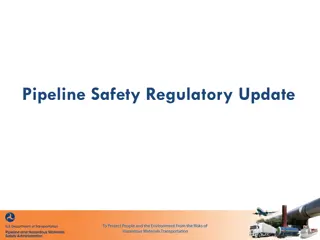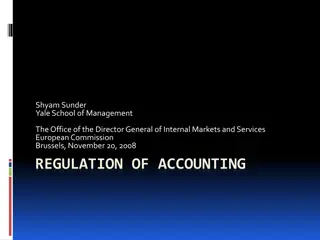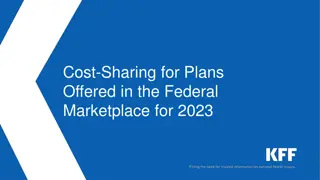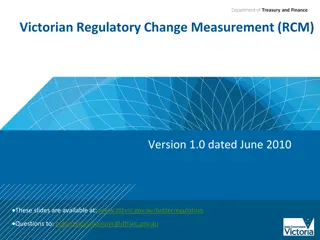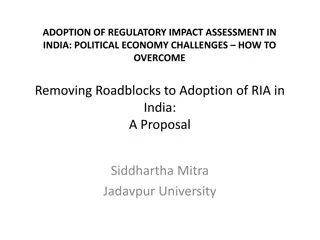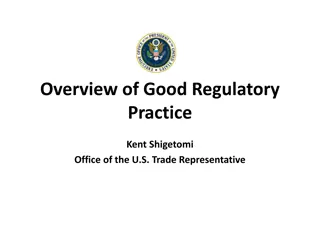Navigating Complexity in the Digital Marketplace: Regulatory Challenges and Solutions
Delve into the challenges of regulating the digital economy, emphasizing wicked competition, IP, and privacy issues. Explore the diverse actors in this ecosystem and the complexities of market concentration, information barriers, and privacy concerns. Uncover the intricacies of dealing with biases, poorly designed algorithms, and conflicting government roles. Propose behaviorally-informed regulatory approaches for effective governance in this rapidly evolving landscape.
Download Presentation

Please find below an Image/Link to download the presentation.
The content on the website is provided AS IS for your information and personal use only. It may not be sold, licensed, or shared on other websites without obtaining consent from the author. Download presentation by click this link. If you encounter any issues during the download, it is possible that the publisher has removed the file from their server.
E N D
Presentation Transcript
Competition, Regulation, The Digital Marketplace Session: Disruptive Technologies and Economic Regulations Dr. Derek Ireland : Policy Consultant and Lecturer Carleton University Ottawa
Purpose and Main Argument of Presentation and Paper Bring a behavioral lens to the management, governance and regulation of the Super wicked problem of the increasingly crowded and complex digital economy and marketplace Main argument: Wicked competition, IP, privacy, other regulatory issues posed by the digital economy Require behaviorally informed regulatory approaches and instruments that are Responsive, reflexive, inclusive, collaborative, polycentric, innovative and wickedly good And both capture and go beyond the best aspects of optimal evidence-based regulation 2
Many Actors in Crowded Digital Marketplace 1) Algorithmic Consumers transacting with Algorithmic Suppliers and Robo-Sellers 2) Government and Non-government Digital Intermediaries/Regulators 3) Algorithmic Educators and Digital Governance of Public Education 4) Platform Cooperatives 5) Conventional Companies using algorithms, robots, artificial intelligence etc. in many sectors 6) Expanding number of final consumers and other buyers and market actors Exiting from conventional regulated markets 3
Complex and Unfamiliar Problems for Competition, IP, Privacy, Other Regulations Market concentration and expanding market and political power over products, markets, information, technologies, and governments Major information asymmetries: New forms of price, fee, and product attribute complexity, confusion and deception leading to New forms of collusion, other anticompetitive conduct Information barriers, protected and proprietary nature of many applications, complex IP issues Personal privacy and security 4
Complex and Unfamiliar Problems Continued Undisclosed biases and self-interest of designers, operators and users Poorly designed and operated algorithms Extending too much faith, confidence and trust to Algorithmic consumers and suppliers, digital intermediaries, platform cooperatives, other forms of artificial intelligence (AI) Conflicting government roles, responsibilities, and functions Leading to legitimate concerns regarding whether Conventional policies, laws, regulations and regulators will be effective 5
Wicked Nature of Digital Marketplace Requires More inclusive, collaborative, polycentric, shared accountability and principles-based regulatory regimes With enhanced roles for Knowledgeable, well-resourced civil society groups Demanding, well-informed and proactive consumer and corporate leaders Collaborative standards and voluntary codes of conduct Better protection for whistleblowers Cooperation across regulatory authorities Heightened non-price competition driven by Product quality, informed choice, consumer autonomy and privacy, ethical norms and conduct by all actors 6
Possible Issues for Discussion 1) Wicked characteristics of digital markets And their implications for regulators, other actors, and evidence-based optimal regulation 2) Finding the right balance between consumer benefits, costs and risks 3) Implications for and possible responses of regulators in developing and emerging market economies Thank You For Your Kind Attention 7










